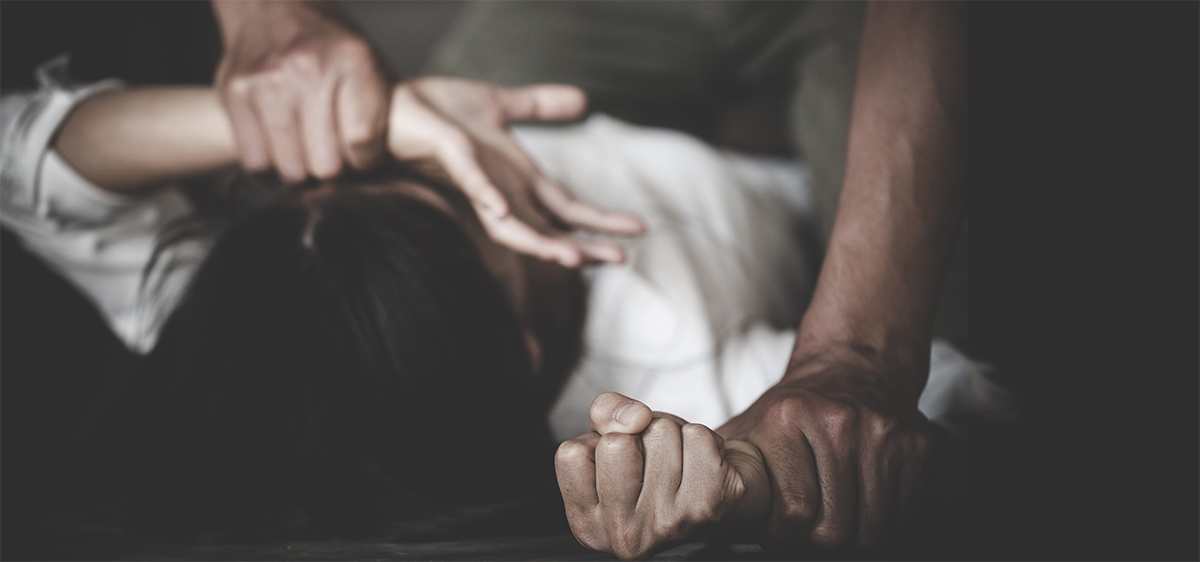The International Bar Association’s Human Rights Institute (IBAHRI) has filed a submission to the United Nations Special Rapporteur on violence against women, its causes and consequences, Ms Dubravka Šimonovic, with a view to informing her next report on Rape as a grave and systematic human rights violation and gender-based violence against women. The IBAHRI’s submission was put forward on 20 May 2020 and provides information in response to the Special Rapporteur’s questionnaire on the criminalisation and prosecution of rape in relation to England and Wales. The submission concludes with 20 recommendations to UN Member States in light of their responsibility to criminalise and prosecute rape.
The IBAHRI’s submission answers questions pertaining to the:
-
definition and scope of criminal law provisions relating to rape and accompanying criminal sanctions and reparations;
-
aggravating and mitigating circumstances provided by law in relation to rape;
-
public and private prosecution of rape and information on plea bargains and statutes of limitations as well as rape shield provisions and measures preventing re-victimisation;
-
the criminalisation of rape as a war crime or crime against humanity, including ratification of the Rome Statute of the International Criminal Court; and
-
data on the number of recent cases of rape that were reported, prosecuted and sanctioned.
A number of good practices are exemplified in the answers pertaining to England and Wales. However, numerous gaps emerge, such as the admission of evidence relating to the victim’s sexual history, the number of rape cases prosecuted and successfully convicted, and ongoing barriers to the reporting and prosecution of rape and accountability of perpetrators.

The IBAHRI submission calls for UN Member States to ‘criminalise non-consensual oral, anal and vaginal penetration against any individual, including against the perpetrator, irrespective of factors such as gender, sexuality, age, marriage / relationship, the absence of threats against the victim, prior or subsequent sexual behaviour of the victim; and ensure the effective implementation of such legislation in practice’.
The submission ends by making a number of recommendations for States to implement a range of measures, including to:
-
acknowledge that a ‘child means every human being below the age of 18 years’ and reform rape and rape of a child laws accordingly;
-
ensure that factors, such as tradition, culture, custom or religion, are not considered as a defence, justification or mitigating factor;
-
ratify, without reservations, the Rome Statute of the International Criminal Court and criminalise rape as a war crime and crime against humanity;
-
remove any statutory limitations to the prosecution of rape;
-
ensure that victims of rape have equal access to justice and remedies, and provide for the right to free legal assistance for victims of rape;
-
establish sexual assault referral centres, focused on survivor wellbeing and respecting their wishes and anonymity;
-
ensure a wide range of special measures for giving evidence are available to all victims of rape;
-
legislate and provide prosecutorial guidance restricting broad questioning of complainants about their sexual history;
-
carry out mandatory adequate training on implicit bias and gender in the administration of justice; and
-
provide guidance and training to police, medics, victim support services, lawyers and the judiciary on the psychological impact of sexual violence, the range of reactions to the assault and its aftermath.
IBAHRI Director, Baroness Helena Kennedy QC, commented: ‘I have spent my professional life of more than 40 years advocating reform of the legal system to provide justice for women; I have spearheaded campaigns for reform of rape law and redress for gender-based violence of all kinds. While we have come a long way in the criminalisation and prosecution of rape, there is still a long way to go. Too often courts do not take into consideration gender perspectives and so the prosecution and remediation of rape cases are mishandled. The upcoming report from the UN Special Rapporteur will hopefully contribute to the ongoing necessary reform to criminalising rape and prosecuting rape worldwide.’
ENDS
Notes to the Editor
-
Click here to download a PDF of the IBAHRI submission to the United Nations Special Rapporteur on violence against women, its causes and consequences. www.ibanet.org/MediaHandler?id=dafee805-6395-4238-8da5-7a9bd4522cb3
-
The International Bar Association (IBA), the global voice of the legal profession, is the foremost organisation for international legal practitioners, bar associations and law societies. Established in 1947, shortly after the creation of the United Nations, it was born out of the conviction that an organisation made up of the world's bar associations could contribute to global stability and peace through the administration of justice. The International Bar Association’s Human Rights Institute (IBAHRI), an autonomous and financially independent entity, works to promote, protect and enforce human rights under a just rule of law, and to preserve the independence of the judiciary and the legal profession worldwide.
For further information please contact: